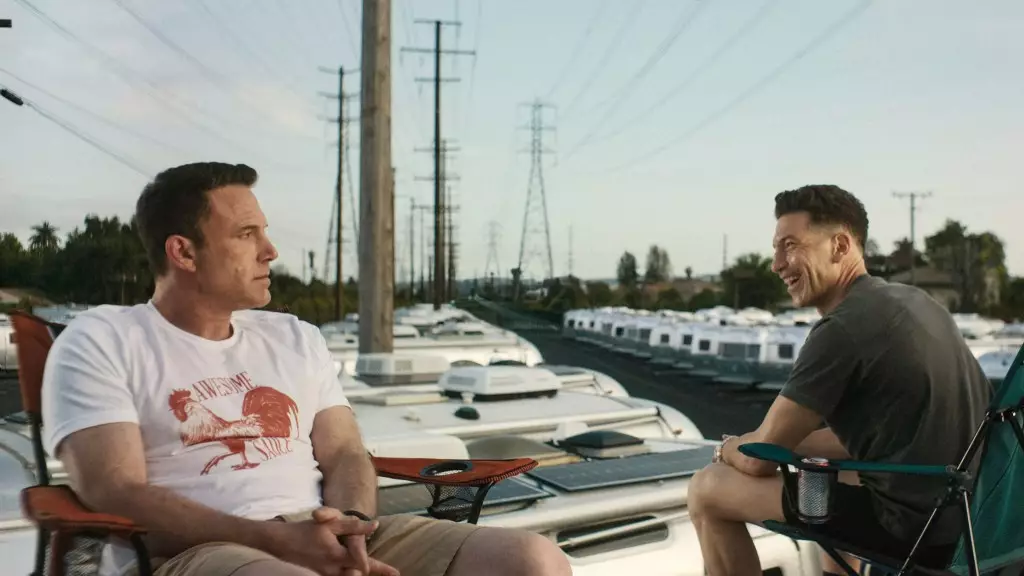In recent discussions around Ben Affleck’s portrayal of a character on the autism spectrum in “The Accountant 2,” the film’s director, Gavin O’Connor, triumphantly declares that the sequel will “champion the neurodivergent community.” Yet, how genuine can this aspiration be when the discourse surrounding autism continues to be muddled by misconceptions, particularly from public figures like Robert F. Kennedy Jr.? His recent assertion that autism is a “preventable disease” epitomizes a cavalier approach to a deeply complex condition and undermines the attempts to elevate the voices of those most affected. O’Connor emphasizes the importance of humanizing neurodivergent experiences; thus, the question arises: is the film truly a vessel for empowerment, or does it inadvertently participate in a false narrative?
The Struggle for Authentic Representation
As audiences grapple with Affleck’s performance, many cast doubt on whether a neurotypical actor can empathetically portray a character on the spectrum without reducing their experience to comic relief or caricature. Critics have argued that Affleck’s role in “The Accountant” falls short of achieving the nuanced representation it so desperately needs. By sidestepping the use of the term “autistic,” the film appears to sidestep the complexities of identity that are vital for authentic storytelling. It’s ironic that while O’Connor advocates for genuine characterization, he seems to cling to outdated tropes that depict autism as an “other” rather than a spectrum of human experience.
Furthermore, the representation of supporting characters, like Justine, played by neurodivergent actress Allison Robertson, raises questions about the authenticity of the film’s intentions. While O’Connor claims to have surrounded himself with experts and sought input from neurodivergent individuals, it begs the question: is tokenism masquerading as advocacy? Just because a character is played by a neurodivergent actor doesn’t absolve the main narrative from potentially harming perceptions of autism. Rather than bridging the gap of understanding, Affleck’s portrayal risks alienating the very community it intends to represent.
Alarmingly Simplistic Views
The rhetoric around disability and neurodiversity is fraught with simplifications. RFK Jr.’s comments highlight a pervasive societal tendency to view autism solely through a lens of limitation and grief. Statements claiming that children with autism “will never hold a job” or “will never write a poem” neglect the rich complexities and diverse successes within the neurodivergent community. These reductive stereotypes do not just misrepresent— they perpetuate stigma, rendering neurodiverse individuals as passive victims rather than dynamic participants in society.
Such simplistic views further entrench misconceptions, making it the responsibility of filmmakers like O’Connor to challenge, rather than comply with, these antiquated perceptions. While touting the intention to humanize characters like Affleck’s, the risk of reifying damaging narratives must be taken seriously. If the film aims to serve as a platform for neurodiversity, it should strive for a more profound engagement with what autism really entails—beyond just a plot device for entertainment’s sake.
Echoes of Conformity
It is vital to recognize that cinema can be a powerful catalyst for change; however, the balance between commercial success and genuine representation often leads to disjointed narratives. O’Connor’s insistence on extensively researching the topic of autism is commendable, yet it comes off as a superficial nod to inclusivity rather than a commitment to transformative storytelling. The problem lies not just in the portrayal of one particular character but in the broader implications of how such narratives shape societal views.
As the applause for diversity in film grows, so should the scrutiny of how that diversity is presented. For every movie that seeks to shine a light on underrepresented communities, there are countless others that fall prey to tropes and reinforce societal barriers. “The Accountant 2” may celebrate the complexities of its protagonist, but unless it dares to challenge prevailing misconceptions with honesty and integrity, it risks becoming merely a polished reflection of societal ignorance.
In the landscape of modern cinema, where the power of representation can reshape narratives, audiences cannot afford to embrace half-measures. The challenge for “The Accountant 2,” and films like it, is to evolve beyond formulaic storytelling and venture into the deeper waters that demand authenticity, empathy, and a willingness to confront uncomfortable truths about the narratives we share.



Leave a Reply